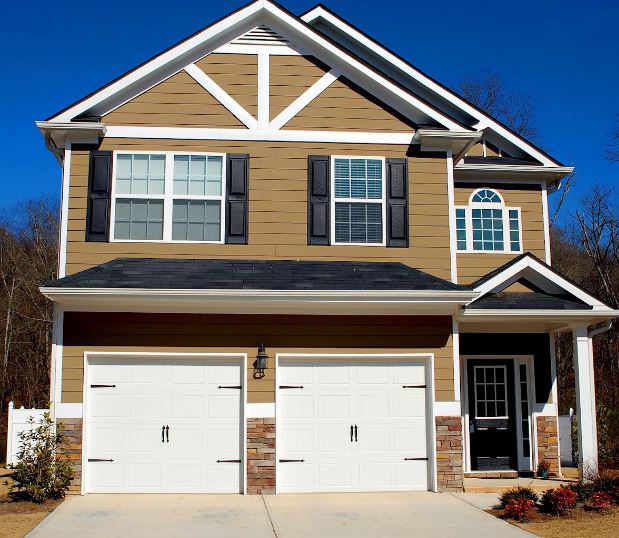Solar Energy Applications in the Home: Harnessing Sunlight for Everyday Benefits

Understanding Solar Energy
Solar energy is a powerful and sustainable source of energy that can significantly impact your home. By harnessing solar radiation, you can take advantage of various technologies to power your household, help the environment, and reduce costs over time.
Basics of Solar Radiation
Solar radiation is sunlight that reaches the Earth. This energy comes from the sun and can be converted into electricity or heat.
Key points about solar radiation:
- Source of Energy: The sun emits an enormous amount of energy every hour, far more than the world consumes in a year.
- Photovoltaics: Solar panels convert solar radiation directly into electricity through a process called the photovoltaic effect.
- Solar Heating: Solar thermal systems use sunlight to heat water or air for your home.
Understanding solar radiation helps you appreciate the potential for using sunlight in your daily life. You can lower your carbon footprint and use renewable energy for your needs.
Advantages of Solar Energy
Using solar energy offers multiple benefits for you and the environment. Here are some advantages to consider:
- Cost Savings: After the initial investment, solar energy can greatly reduce or even eliminate your electricity bills.
- Environmental Impact: It lowers greenhouse gas emissions, helping to fight climate change.
- Energy Independence: By generating your own power, you rely less on fossil fuels and can become less affected by energy price fluctuations.
- Low Maintenance: Solar systems require minimal maintenance, with most panels lasting over 25 years.
By choosing solar energy, you can enjoy a combination of savings and environmental benefits while contributing positively to the planet’s future.
Solar Technology in the Home
Solar technology provides effective ways for you to harness energy from the sun right at your home. With various components and proper installation, solar energy can significantly cut your electricity bills and provide sustainable energy.
Components of Home Solar Systems
Home solar systems mainly consist of several key components. Solar panels are made of solar cells that capture sunlight, converting it into electricity. You place these panels on your roof or in an open area with plenty of sunlight.
Additionally, solar collectors can be used for heating water or air. This feature can lower your heating costs.
Other important parts include solar batteries, which store excess energy for later use, ensuring you have power even when the sun isn’t shining.
These components work together to enhance your home’s energy efficiency and sustainability.
Solar Panel Installation
Installing solar panels involves several steps. First, a professional will assess your home for the best placement and angle for your rooftop solar panels. It’s essential to maximize sunlight exposure for efficient energy production.
Once the assessment is complete, installers mount the panels securely, connecting them to your home’s electric system. They will ensure the wiring is safe and functional.
Depending on your location, various permits may be necessary for installation. A licensed installer will help you navigate that process to meet all regulations.
After installation, you can start enjoying the benefits of solar electric power generation right away!
Solar Heating Solutions
Solar heating solutions make use of the sun’s energy to provide warmth for your home and water. These systems can be both efficient and environmentally friendly, reducing reliance on traditional heating sources. There are several types to consider, including solar water heaters, solar space heaters, and hot air solar systems.
Solar Water Heaters
Solar water heaters are a smart way to supply hot water for your home. They use solar collectors to capture sunlight and convert it into heat. This heat is then transferred to water in a storage tank.
There are two main types of solar water heating systems:
- Active systems use pumps to circulate water or antifreeze through collectors.
- Passive systems rely on gravity and natural circulation, requiring less maintenance.
This method can significantly lower your energy bills and improve your home’s efficiency by minimizing the use of conventional energy sources, like gas or electricity. Many households find that solar water heaters pay for themselves over time.
Solar Space Heaters
Solar space heaters warm your home directly by using sunlight. These systems capture and convert solar energy into heat, which is then distributed throughout your living space.
You can choose between active and passive solar space heating:
- Active systems use fans and pumps to move air or water.
- Passive systems are designed into the building’s architecture, maximizing sun exposure.
By utilizing solar energy, you can reduce heating costs during colder months. Energy-efficient design can further enhance the benefits, making your home more comfortable and eco-friendly.
Hot Air Solar Systems
Hot air solar systems are a specific type of solar space heater. They gather solar energy using a collector that heats air directly.
The hot air is then circulated throughout your home. These systems are often installed on rooftops or exterior walls, maximizing sun exposure.
Benefits include:
- Reduced dependence on fossil fuels.
- Lower energy bills.
- Quick heating of spaces.
Hot air solar systems can be a great addition for those looking to efficiently heat a space while being environmentally conscious. They provide a lean and effective solution to household heating needs.
Solar Energy for Daily Use
Solar energy offers practical solutions for daily living. By utilizing sunlight, you can cook meals, light your home, and even charge devices anywhere. Here are some specific applications you might find useful.
Solar Cooking
Solar cooking is an eco-friendly way to prepare meals using the sun’s energy. A solar cooker captures sunlight and converts it into heat. You can use this heat for baking, boiling, or steaming food.
There are different types of solar cookers, including box cookers and panel cookers. Box cookers can reach high temperatures and are great for baking. Panel cookers are lightweight and perfect for on-the-go cooking.
To use a solar cooker, set it outside in direct sunlight. Keep in mind that solar cooking may take longer than traditional methods. On a sunny day, you can cook a meal without using any fossil fuels.
Solar Lighting and Ventilation
Solar lighting is another fantastic application of solar energy. You can illuminate your home with solar-powered lights. These lights are easy to install and often come with built-in sensors for automatic operation at night.
For ventilation, solar-powered fans can help cool your home. They use solar energy to circulate air without increasing your electric bill. This is especially useful during hot summer months.
Using solar lights in your garden or driveway enhances safety and visibility. They charge during the day and provide light at night, making them both convenient and energy-efficient.
Portable Solar Devices
Portable solar devices offer flexibility for your lifestyle. Solar-powered chargers are popular for keeping phones, tablets, and other devices charged on the go. These chargers are compact and perfect for outdoor activities like camping or hiking.
Additionally, there are portable solar ovens designed for cooking meals outdoors. These devices are lightweight and often foldable, making them easy to carry.
Using portable solar devices increases your energy independence while reducing reliance on traditional power sources. It’s a smart way to enjoy modern conveniences sustainably.
Solar Water and Food Processing
Using solar energy for water heating and food processing can significantly enhance your home’s efficiency and sustainability. By harnessing the power of the sun, you can improve your cooking methods and preserve food effectively.
Solar Water Heating and Distillation
Solar water heating systems capture sunlight to warm water for various needs. You can use this hot water for cooking, cleaning, or even bathing. Solar collectors absorb sunlight and transfer heat to the water stored in a tank. This process reduces your reliance on traditional energy sources, leading to cost savings.
Solar distillation is another great application. It uses the sun to evaporate water, leaving impurities behind. The vapor then condenses on a cooler surface, giving you clean, distilled water. This method is especially useful in areas where water quality is poor.
Solar Dryers and Food Preservation
Solar dryers are a smart choice for preserving fruits, vegetables, and herbs. They utilize sunlight to remove moisture, reducing spoilage. You can set up a solar dryer in your backyard, allowing you to dry food naturally.
The process is simple: place your food in the dryer, and let the sun work its magic. This method not only saves energy but also maintains more nutrients compared to traditional drying methods. Using solar energy for food preservation means you can enjoy your garden’s bounty all year round without relying on electricity.
Self-Sufficiency and Energy Independence
Achieving self-sufficiency at home means you can meet most of your energy needs without relying on external sources. This section highlights solar-powered systems that help you maintain energy independence.
Solar-Powered Pumps and Irrigation
Solar-powered pumps are a great way to harness energy for your gardening and agricultural needs. These pumps can draw water from wells or rivers, helping you irrigate your plants without using grid electricity.
- Benefits:
- Cost Savings: Once installed, you save on monthly electricity bills.
- Sustainability: Using renewable solar energy reduces your carbon footprint.
For larger farms, concentrated solar power (CSP) systems can be utilized to create steam and power larger pumps efficiently. This is particularly useful during dry seasons when water is scarce.
Backup Power and Energy Storage
Having a backup power system is essential for energy independence. Solar battery storage allows you to store excess energy produced during sunny days for later use.
- Key Features:
- Emergency Backup: Power your essential appliances during outages.
- Smart Charging: Batteries can be charged from solar panels or the grid.
This setup not only ensures you have power when you need it, but it also makes you less reliant on traditional energy sources. You can enjoy peace of mind knowing you have a reserve of energy to draw from.







